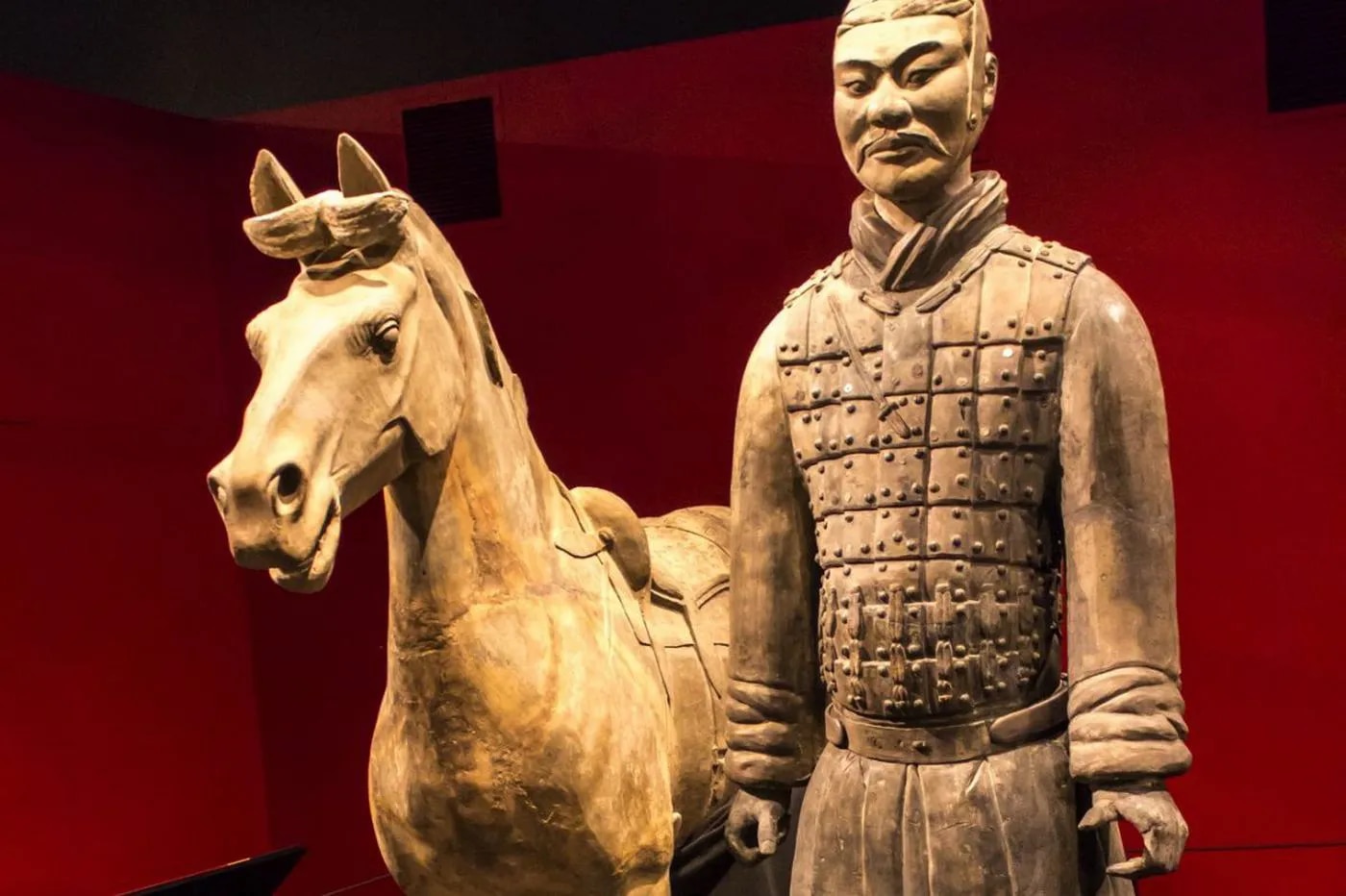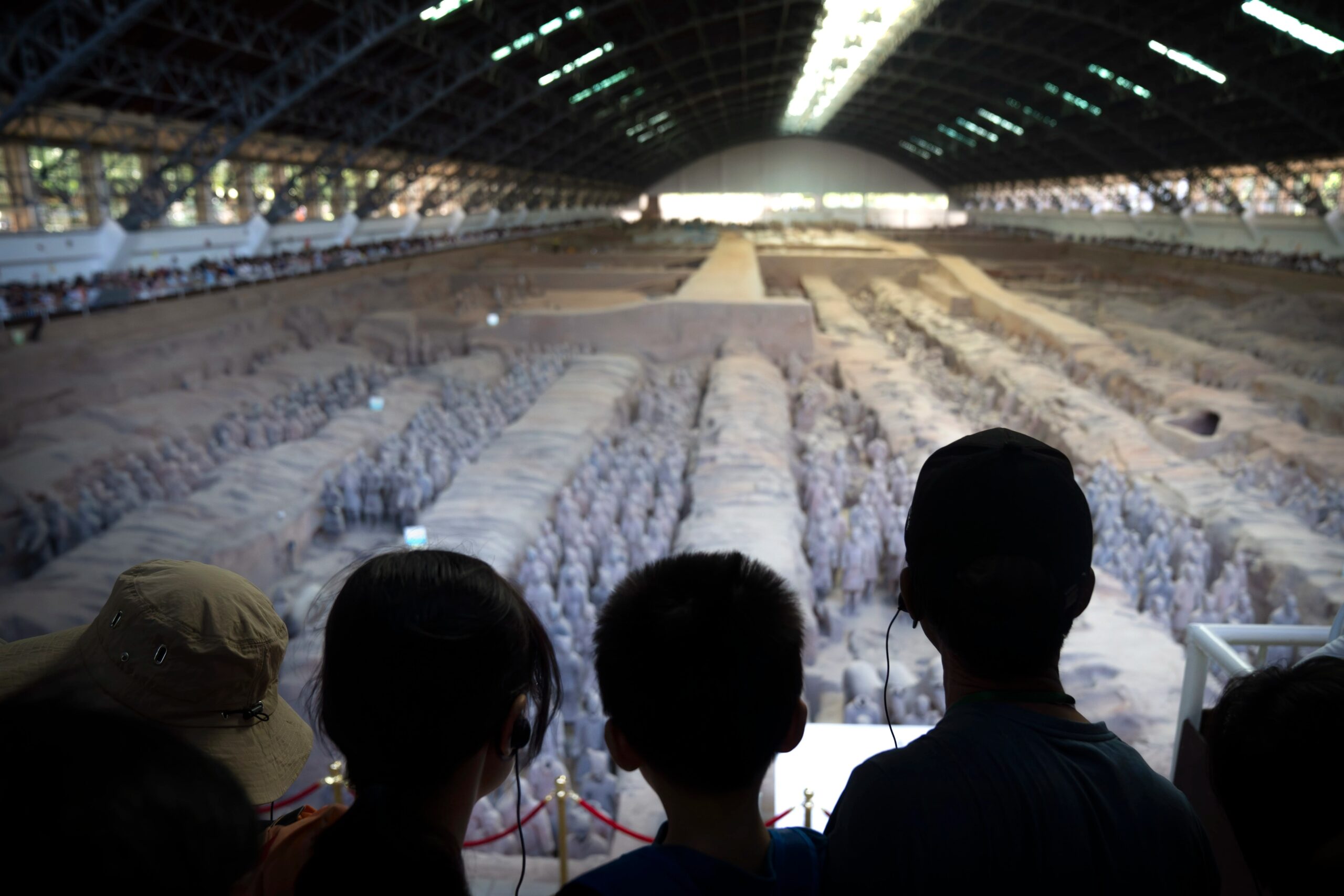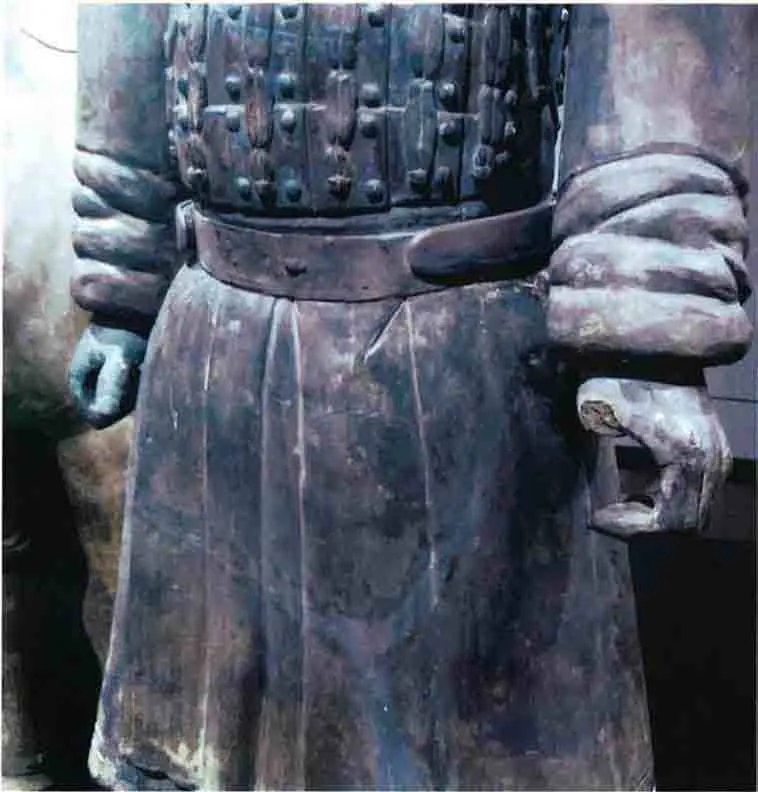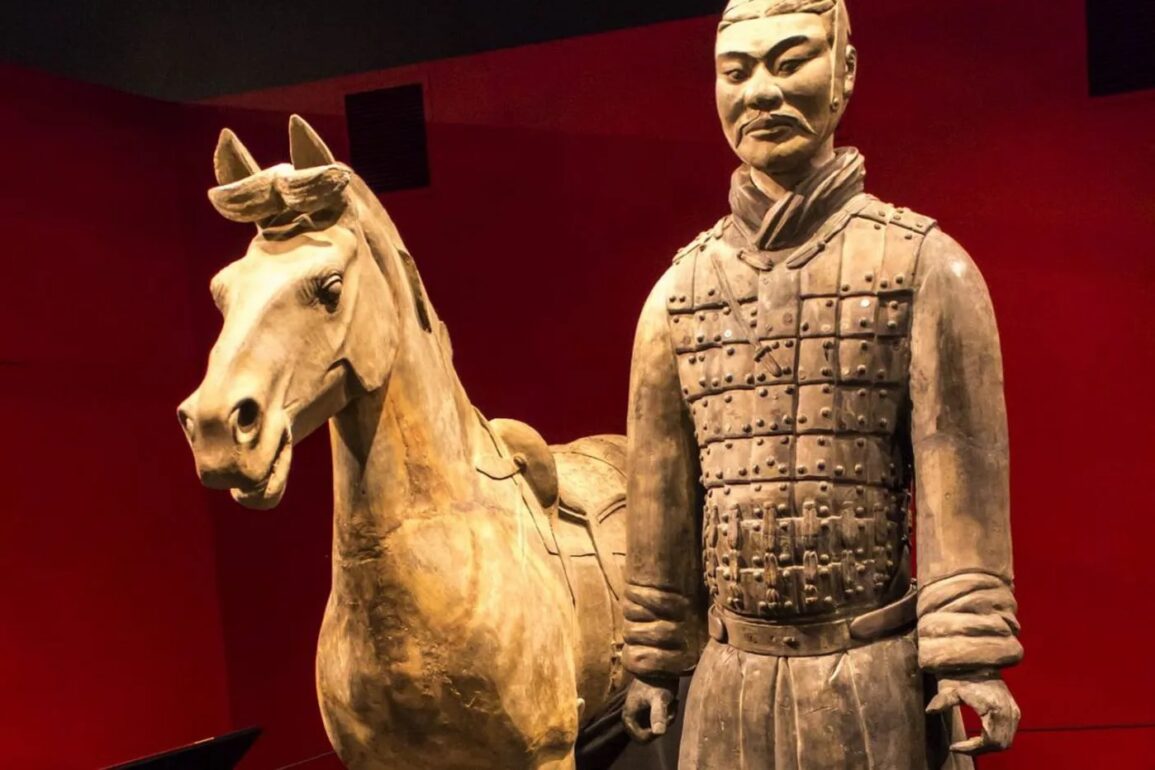A Delaware man who unwittingly sparked an international incident with China when he snapped the finger off an ancient terra-cotta warrior statue on display at the Franklin Institute was sentenced Wednesday to five years’ probation.
Michael Rohana, 29, apologized to his family and the Chinese government, saying he would make no excuses for his drunken prank at the museum’s 2017 ugly sweater Christmas party.
“Through all of this, I’ve earned a huge respect for these archaeological items,” he told U.S. District Judge Chad F. Kenney during a hearing in federal court in Philadelphia. “They are not to be messed with, broken, or damaged.”
But while Kenney credited Rohana for his contrition, the judge noted that he was lucky he wasn’t facing jail time.
“Your conduct in this case was absolutely outrageous — quite frankly, sickening,” he said. “Everybody around the world looks at this and says, ‘Yep, that’s those Americans. No respect for nothing.’”
Rohana’s sentence came five and a half years after his act of finger filching landed him — a former department store shoe salesman who lives with his parents in Bear, Del. — in the middle of a case that confounded the international art world and exposed Pennsylvania’s most popular museum to questions about its security.
» READ MORE: How a stolen thumb and drunken mistake at a Philly museum confounded the international art world

In addition to the probation term, Kenney ordered Rohana to pay a $5,000 fine, complete 100 hours of community service, and pay restitution — to be determined later — to the Franklin Institute, its insurer and the museum from which the ancient Chinese statues had been on loan.
But it could have been worse.
Rohana’s maximum sentence was limited to just one year behind bars thanks to a deal he cemented with prosecutors earlier this year requiring him to plead guilty to one misdemeanor count of trafficking an archaeological resource in interstate commerce.
That agreement effectively cut the potential prison time he was facing under more serious felony counts by more than a decade.
Rohana’s 2019 trial on those more serious charges marked the first time the U.S. government had used the federal art theft statute — a law typically used to prosecute perpetrators of museum heists and that requires the stolen items to be worth more than $5,000 — against someone only accused of an act of vandalism.
The jury ultimately failed to reach a verdict, prompting a mistrial, after it was unable to determine whether Rohana’s actions and the value of the stolen thumb met the threshold requirements for a conviction under that law.
“These charges were made for art thieves — think like Ocean’s Eleven or Mission: Impossible,” said Rohana’s attorney, federal public defender Catherine Henry, in her closing arguments during the trial. Rohana “wasn’t in ninja clothing sneaking around the museum. He was a drunk kid in a bright green ugly Christmas sweater.”
‘Irreversible damages’
The statue — a life-size figure known as The Cavalryman, insured at $4.5 million — is one of the few fully restored terra-cotta figures of the thousands recovered in fragments from the tomb of China’s first emperor, Qin Shi Huang, who united the nation under his rule in the third century B.C.
The Chinese government strictly regulates display and restoration of the 2,000-year-old relics and had spent years reviewing the Franklin Institute’s security protocols and exhibit plans before selecting it in 2017 as one of two U.S. museums to host them as part of a traveling exhibit.

That exhibition coincided with one of the institute’s periodic “Science After-Hours” events, programs aimed at attracting adults and often featuring themed activities and alcohol sales.
And on Dec. 21 of that year, Rohana, dressed in a fuzzy green sweater and a Phillies cap, drove in with friends from Delaware for a holiday-themed party during which he stole away from the festivities to explore.
Security footage showed him skulking past a roped-off stanchion, up a ramp and into the darkened room that housed the closed terra-cotta exhibit. He snapped selfies, texted his friends to join him and mugged for the camera while he grabbed one of the statues in a side embrace.
Before sneaking back out, he paused to examine one more — The Cavalryman — grasped its left thumb and pulled.
Testifying during his 2019 trial, Rohana said he panicked after it broke off in his hands, shoved it into the pocket of his jeans and ran.
When FBI agents identified him from the footage and showed up at his parents’ home a month later, Rohana immediately confessed and led them to the dresser drawer in his bedroom where he’d been keeping the purloined finger.
“I don’t know why I broke it,” he told the jury. “It didn’t just happen, but there was never a thought of, ‘I should break this.’”
During Wednesday’s sentencing, Assistant U.S. Attorney K.T. Newton acknowledged Rohana might not have set out to spark an international incident, but his actions caused permanent damage to “the cultural exchange between nations.”
It cost the Qin Shi Huang Imperial Mausoleum Museum more than $25,000 to repair the statue, she said, and The Cavalryman has since been pulled from public exhibition.
“Michael Rohana’s actions not only caused irreversible damages to the terra-cotta warrior itself, but also endangered the inheritance of human civilization,” administrators at the Shaanxi History Museum in China wrote in a letter to the judge.

Still, Rohana attorney Nancy MacEoin insisted that her client had suffered enough.
Since he was arrested in 2018, his case has drawn international scrutiny. Both he and his family have lived with the shame of what he did for nearly six years, she said.
Now working for a local HVAC company, Rohana told the court he was just looking for an opportunity to atone and start adulthood in earnest without the mistakes of his youth hanging over him.
He’s begun dating a former co-worker he met while employed in the shoe department at Boscov’s at the Christiana Mall since his arrest, and looks forward to starting a family. The woman’s father wrote the judge, saying that while he “wasn’t sure anyone would ever be good enough for my only daughter,” Rohana, despite the charges hanging over his head, had won his approval.
“I was wasting my time with no goals and no vision of where I wanted my life to go,” Rohana said in court. “This has been a huge wake-up call for me.”
Kenney’s decision to spare Rohana prison time left unresolved for now how much money he will have to pay for his crimes.
In addition to the $25,000 cost of repairing the statues, the Franklin Institute is seeking reimbursement of more than $50,000 it spent installing security barriers and to fly Chinese officials to Philadelphia to examine the damaged statue.
Some of that cost may end up being covered by a $32,000 collection of Air Jordansand other Nike sneakers Rohana told the judge he’d been collecting for years.
Kenney set a hearing next month to determine the full restitution amount, sending Rohana off Wednesday with a hint of the financial penalties to come.
“It’s going to hurt,” the judge said.
This post was originally published on this site be sure to check out more of their content.







